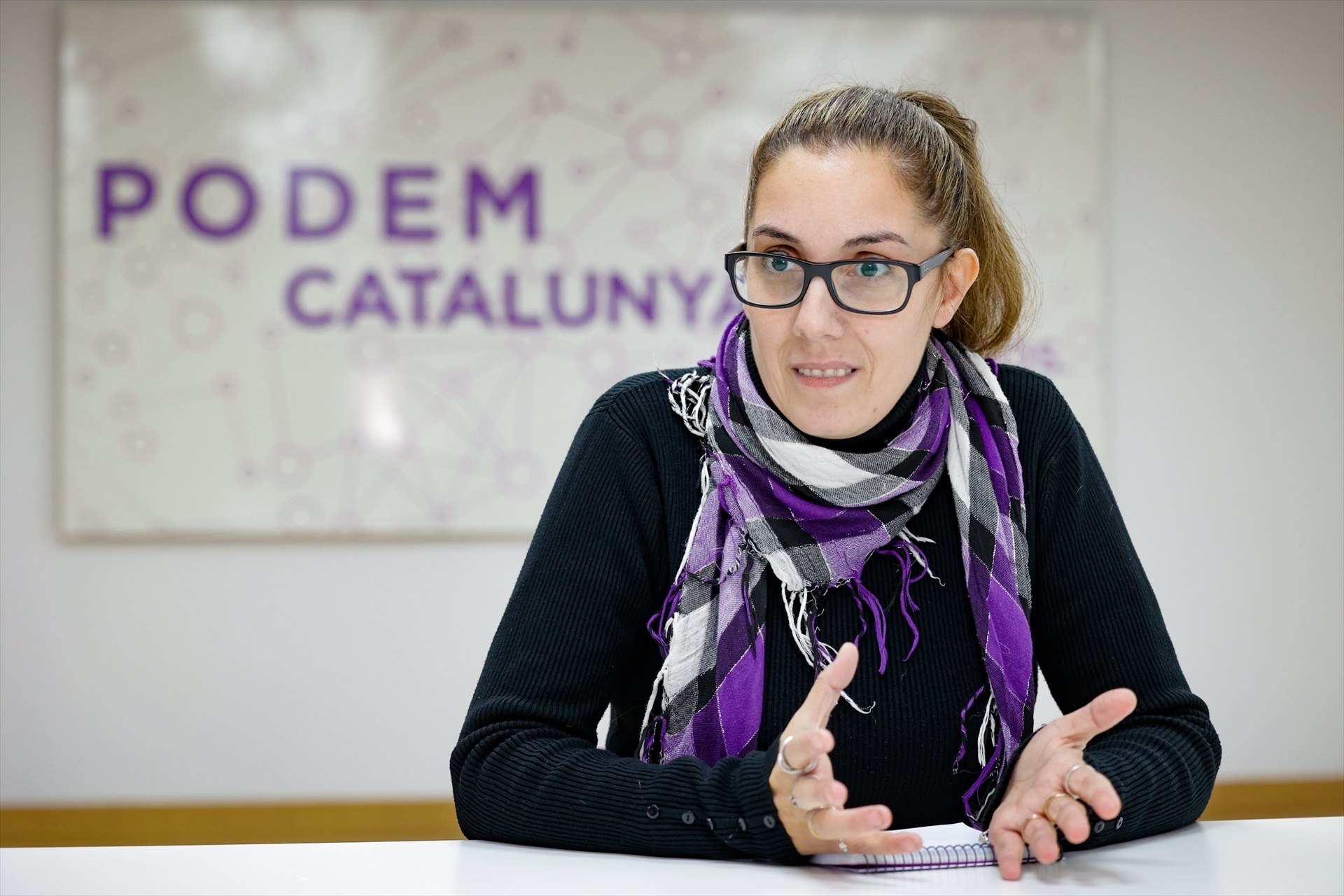"We will be there and there will be a ballot paper and a representation of Podemos." That's how clearly the spokesman for Podem Catalunya, Andrés Medrano, responded just a few days ago when asked if the Catalan branch of the Spanish alternative-left party would be standing in the parliamentary elections in Catalonia on May 12th. Now, however, they have had to backtrack and despite having carried out a primary election process to choose their candidate for the "12-M" date, the party has announced that it will not run for these elections. "Faced with a moment of uncertainty and political instability in Catalonia, we choose not to collaborate in the fragmentation of the left, since this only benefits the right and the far right. Therefore, exercising responsibility towards Catalan citizens, we have decided not to stand in the Autonomous Elections on May 12th," explains the party in a statement published this Wednesday.
When Medrano was asked about the Catalan elections on Monday, the spokesperson made it very clear that the party's decision was to run, definitively ruling out the possibility of not presenting a candidature for the parliamentary elections. For this reason, the party had started a process of primaries that had culminated last Sunday, March 24th, although they had not yet announced the results. Now, however, the party has ended up changing its mind: "We have had little time to strengthen and structure Podem, and in the context of a double electoral date, we believe that it is not viable to compete given that the situation does not allow us to deploy political and organizational capacity and influence", they explain in the statement in which they assert that this has been a very "complex" decision, in line with those that have had to be taken by the party in recent weeks.
The break with the Comuns
In the last Catalan parliamentary election in 2021, Podemos ran jointly with the Catalan-based alternative left group Catalunya en Comú, under the candidacy name of En Comú Podem, an alliance that seemed impossible to repeat after the disputes on the left over the last year. The creation of the Sumar platform, led by Spanish labour minister Yolanda Díaz, effectively supplanted the role of the more radical Podemos as the central party in Spain's alternative left political space, stressing relationships between the two groups. Podemos and Sumar ran jointly in last July's Spanish election, but in December, Podemos decided to formally leave the Sumar group in Congress. This year, both parties stood separately in the Galician autonomous election, with a disastrous result: neither achieved representation. From the Comuns, spokesperson Joan Mena asserted in a press conference last week that "it is clear that Podem has chosen another path and that this makes negotiations difficult", when asked about a hypothetical new electoral alliance for May 12th.

